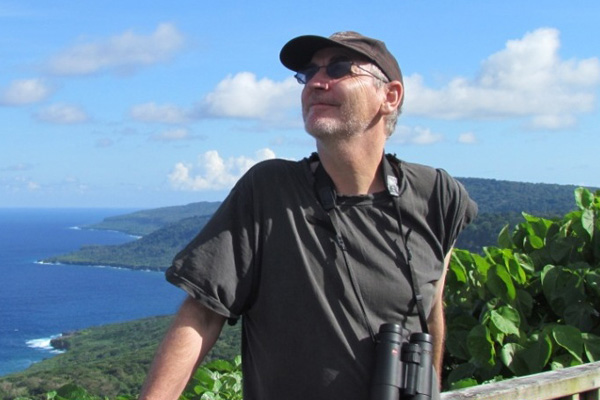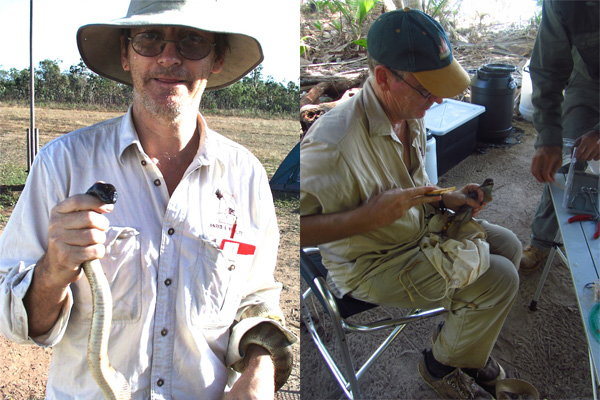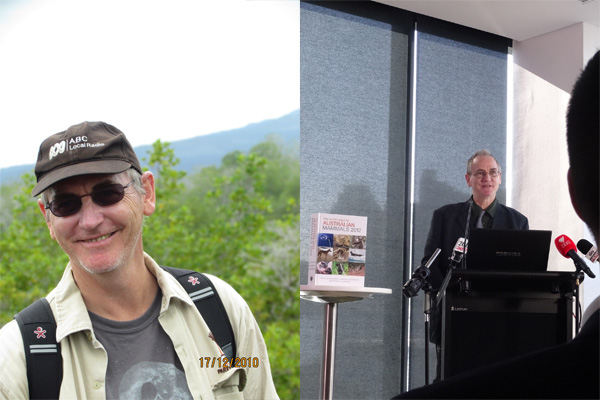Member Spotlight
|
John Woinarski - 2013 SCB Distinguished Service Award Winner. Lauren Bailey | October 2014 |
 John Woinarski John Woinarski--------------------------------------------------------------------------------------------------------------------------------------------------------------------- |
John Woinarski is a professor at Charles Darwin University and a consultant with the Pew Charitable Trusts. He won an SCB Distinguished Service Award in 2013 for his contributions to knowledge and management of the north Australian biota. Most recently, his work was instrumental in revealing the catastrophic decline in north Australia mammals and implementing strategies to reverse that troubling trend.
In the following Q&A with SCB, John discusses where he got his start in conservation, his favorite projects, and the biggest challenges he sees in conservation today. He also offers advice to young conservation biologists who want to understand 'how the world works' and make a difference in the field.
|
--------------- "We are blessed in our profession. Conservation biology offers extraordinary opportunities for the time-honoured human quest of answering the question: 'how does the world work?'" John Woinarski --------------- |
. |
How did you first become interested in conservation biology?
Luck, and inspiring guides. I was fortunate to have been brought up in two largely natural places, with my formative years spent in a very small village nestled in extensive forest in the mountains of south-eastern Australia. Much of my youth was spent wandering alone in those forests, trying to learn the names of things and how the system worked. The conservation seed was planted early, maybe when I was about 10 years old, with the clearing of a beautiful woodland adjacent to our house: it seemed so uncaring. Some inspiring teachers in school showed me various keys to the understanding of nature, and taught me that it was right that we should value it.
 |
|
John Woinarski --------------------------------------------------------------------------------------------------------------------------------------------------------------------- |
|
--------------- "What works for me is to aim to get inside the head of my study animal, to seek to see the world from their perspective...a solely human perspective on the workings of nature is limiting and shallow." John Woinarski --------------- |
I might evade that question: I’ve enjoyed most all of my work. I’ve worked mostly on research, management and policy concerning threatened species. The tide is ebbing on many of these species and ‘success’ is often simply about understanding causality, reducing the rate of decline, or of stabilising a fragile status. In many cases, such imperfect outcomes are accomplishments that provide some hope.
 |
|
John Woinarski --------------------------------------------------------------------------------------------------------------------------------------------------------------------- |